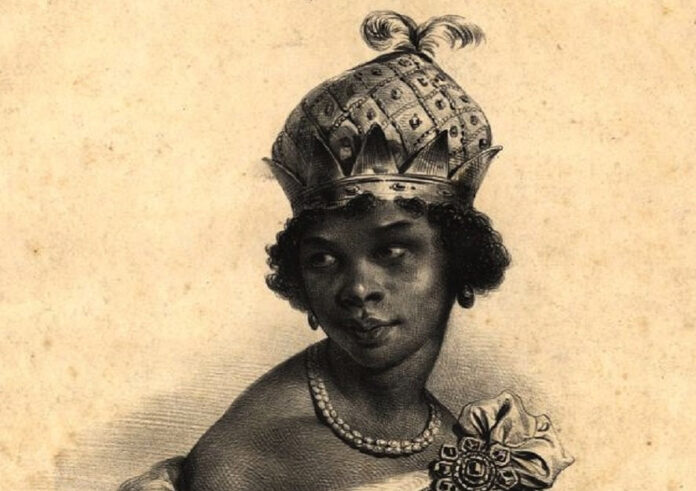In the heart of 17th-century Central Africa, one woman’s courage shook the foundations of colonial ambition. Nzinga Mbande, Queen of Ndongo and Matamba, is remembered not only as a skilled ruler but as a fierce strategist who stood toe-to-toe with the Portuguese Empire at the height of their power. Her story is a testament to resistance, diplomacy, and the unbreakable will to defend her people.
Born in 1583 in the Kingdom of Ndongo—part of modern-day Angola—Nzinga grew up during a turbulent period. The Portuguese had arrived on Africa’s west coast in the late 15th century, driven by trade and a thirst for territorial control. By the time Nzinga was a young woman, her homeland was already feeling the pressure of European encroachment, slave raids, and internal political instability.
From the beginning, Nzinga was no ordinary princess. Trained in statecraft and military affairs, she possessed a sharp mind and an unflinching confidence that set her apart. In 1622, she was sent as an envoy to negotiate peace with the Portuguese governor in Luanda. Here, her wit and defiance became legendary. When the Portuguese governor refused to offer her a chair, she ordered one of her attendants to kneel so she could sit at eye level—making it clear she would not be treated as an inferior.
When Nzinga later became queen, she transformed her kingdoms into a formidable force. She understood that brute strength alone would not defeat a European power armed with advanced weaponry, so she turned to diplomacy. Nzinga formed alliances with neighboring African states and even with the Dutch, who were enemies of the Portuguese. At the same time, she reorganized her armies, blending traditional combat with newly acquired European tactics.
Her resistance was not just military. Nzinga fought to protect her people from enslavement, offering refuge to those fleeing Portuguese capture. She relocated her capital to a more defensible region and turned Matamba into a thriving trading state, using commerce as another weapon in her fight for sovereignty.
For over 40 years, Nzinga kept the Portuguese at bay. While most African kingdoms fell to colonial expansion, she maintained her independence until her death in 1663 at the age of 80. Her passing marked the end of an era, but her legacy lived on as a symbol of African resilience and leadership.
Today, Nzinga Mbande is celebrated in Angola and across Africa as one of history’s great warrior queens. Streets, monuments, and even university lectures keep her name alive. Her life is a reminder that Africa’s story is not only one of colonization but also of resistance, ingenuity, and self-determination.


Great write-up, I¦m normal visitor of one¦s website, maintain up the nice operate, and It is going to be a regular visitor for a long time.